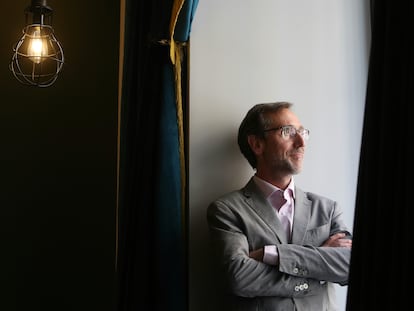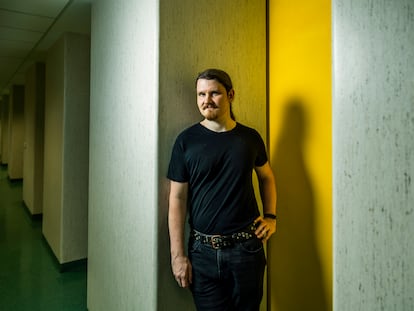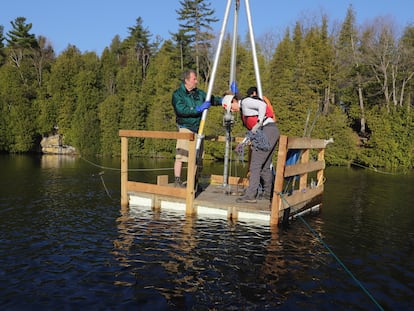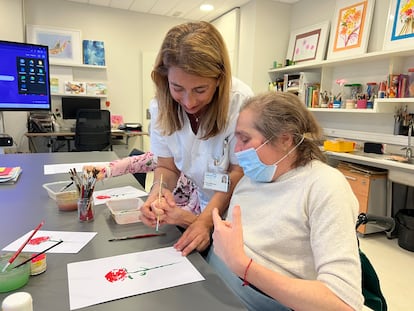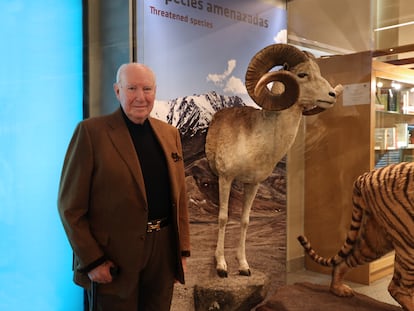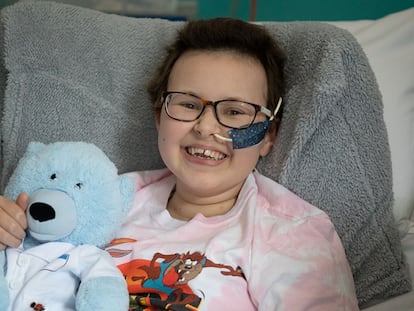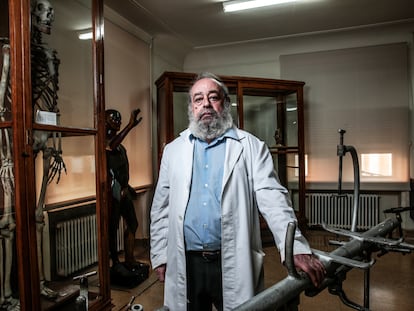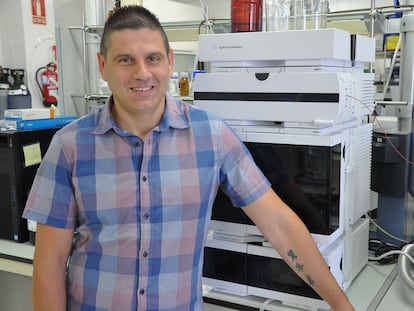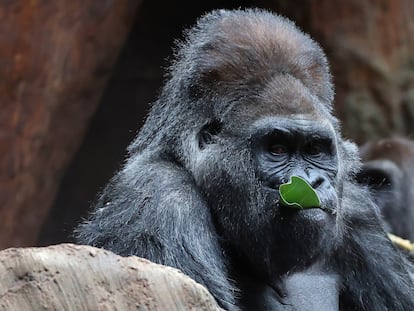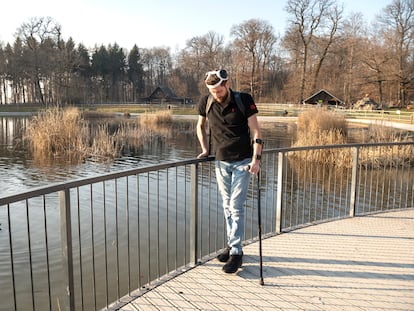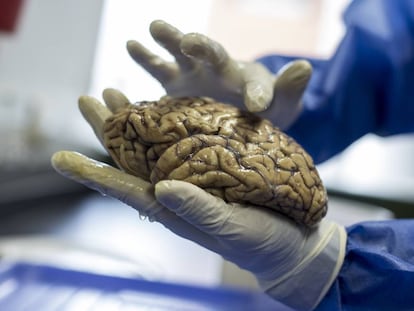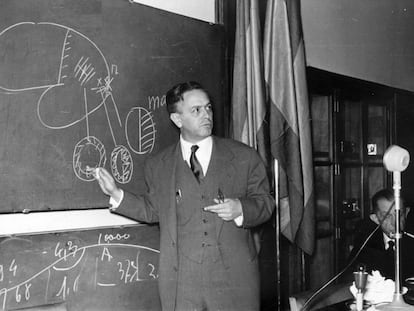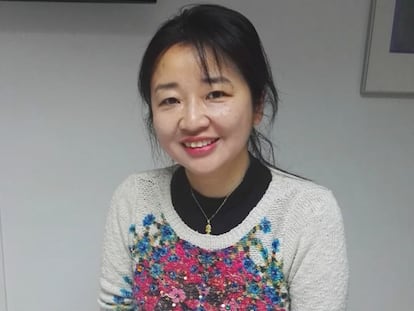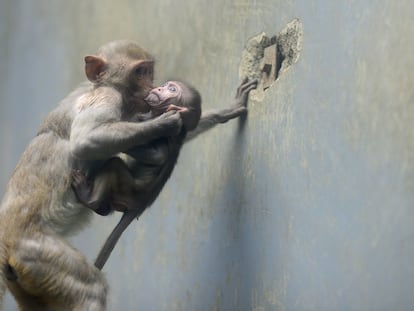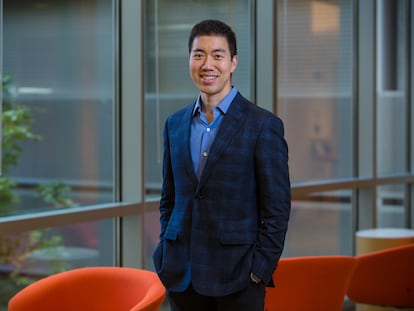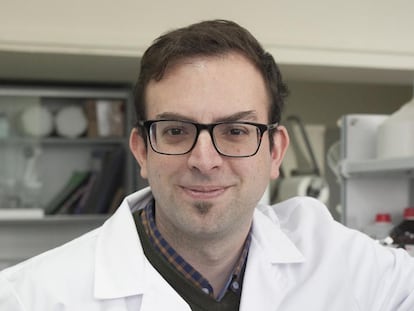An international consortium managed to read the previously elusive Y chromosome, which is crucial in determining sex in men and linked to an increased risk of cancer
The combination of a pair of drugs ‘awarded’ the Nobel Prize in Medicine reduces tumors in 28% of patients with aggressive melanoma
The analysis shows that prolonged exposure to low doses of radiation can be just as harmful as the same amount received all at once
Twelve-year-old sisters Cayetana and Celia share the same genetic mutation, but only one of them suffers from an extremely rare disease that turns muscle into bony plaques
After the outbreak of the war in Ukraine, the biochemist escaped Russia and joined the National Cancer Research Center in Madrid to find a cure for pancreatic cancer
Crawford Lake hides a history book at its bottom: perfect layers of sediments that show centuries of human impact, year by year
The former NASA chief scientist has left the planet five times, and has come to spend more than eight hours floating alone in space
The French researcher began the molecular machine revolution four decades ago, with biological motors that were 100,000 times smaller than the thickness of a human hair
A recent discovery opens a new avenue to seek treatments against the disease, initiated by the kissing disease virus
The dictator’s nephew, who claims to have met Osama bin Laden in the mountains between Afghanistan and Pakistan, is giving away the specimens he accumulated over decades
Palestinian scientist Jacob Hanna uses a chemical cocktail to induce self-organization of embryonic stem cells into a structure similar to a natural embryo
Sadly, a third young man died in the clinical trial. It was conducted at a London hospital that receives funding from royalties earned from the book ‘Peter Pan’
The Austrian scientist, a pioneer of quantum teleportation, reflects on God, the nature of things and the future of computing
Medical museums are rethinking how they exhibit controversial specimens like the skeleton of Pedro Antonio Cano, a 7-foot man from South America
Spain’s most prolific scientific academic — meat expert José Manuel Lorenzo — put his name on 176 papers last year, exposing an underworld of shady practices
The wealth of genetic information will make it easier to identify pathological mutations, such as the ones that cause cancer
Dutch citizen Gert-Jan Oskam, 40, was left paralyzed after a bicycle accident. He can now climb stairs with the help of crutches
A rare genetic mutation protected a Colombian man from developing the hereditary dementia for two decades. The finding may open the door to new treatments for the disease
An international consortium published a genetic blueprint of humanity that better reflects the spectrum of human diversity and heralds a “fairer” era in medicine
A study returns to the case of a soldier injured during the Spanish Civil War who inspired doctor Justo Gonzalo’s theory of the human brain
Sakhr Alhuthali reveals how foreign researchers are paid by universities to lie about their main affiliation and boost their position on the influential Shanghai Ranking
The psychiatrist, currently employed in Spain at the Sant Joan de Déu Research Institute, declared that her main place of work was King Abdulaziz University, with the aim of elevating the Arab institution in the international rankings
More than a dozen academics in Spain falsely claim primary affiliations with Arab institutions to boost their academic prestige
Chinese scientists reveal an ethical technique for studying the first days of pregnancy
The American scientist has invented a revolutionary tool that can modify the human genome. It has already saved the life of a girl with a very aggressive type of cancer
The prolific chemist, who has published a study every 37 hours this year, has been sanctioned by the University of Córdoba over his research work for other institutions in Russia and Saudi Arabia
An international consortium created personalized maps of the epigenome, the “librarian” that chooses what is read in the cells’ instruction manual

